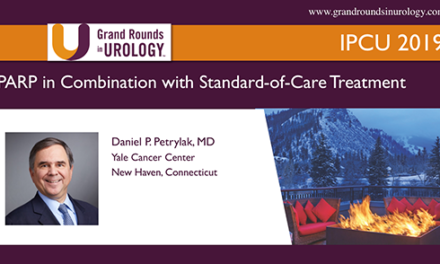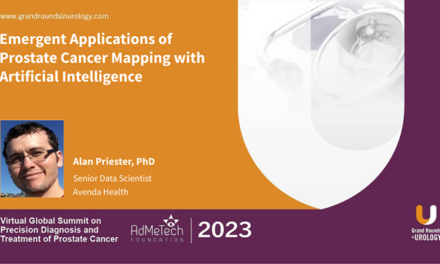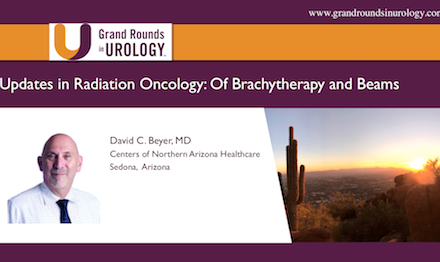Franklin Gaylis, MD, presented “Leveraging the EMR to Improve Quality in Risk Stratification for Prostate Cancer” for the Grand Rounds in Urology audience in June 2021.
How to cite: Gaylis, Franklin. “Leveraging the EMR to Improve Quality in Risk Stratification for Prostate Cancer” June 2021. Accessed Oct 2025. https://grandroundsinurology.com/leveraging-the-emr-to-improve-quality-in-risk-stratification-for-prostate-cancer/
Leveraging the EMR to Improve Quality in Risk Stratification for Prostate Cancer – Summary:
In part 1 of a 3-part series, Franklin Gaylis, MD, FACS, Chief Scientific Officer of Genesis Healthcare Partners and Voluntary Professor of Urology at the University of California, San Diego, looks at how improved quality reporting can improve risk stratification for prostate cancer. Dr. Gaylis explains that the United States’ healthcare system has begun a transition from volume to value due to legislation like the Medicare Access and CHIP Reauthorization Act of 2015, and this shift to value will require data for reporting adherence to quality measures. However, while much is to be gained from quality measurement, the current system of quality reporting is extremely expensive and time-consuming, and greater effort is needed to standardize measures and make them easier to report. Dr. Gaylis then looks at a study by Genesis Healthcare intended to improve documentation and staging templates for digital rectal examinations (DREs) for prostate cancer staging and risk stratification. They found that DRE documentation is generally quite variable and not very specific, and that by leveraging the electronic medical record (EMR) with explicit templates, they were able to increase physician confidence in DRE findings. More accurate DRE documentation leads to improved risk stratification and therefore improved care of patients with prostate cancer. Dr. Gaylis concludes that by encouraging urology practices to record more accurate and precise DRE information, better templates for reporting can improve patient care.
Parts 2 and 3 of Dr. Gaylis’ look at how the EMR template can improve outcomes in urology will be published on GRU in the coming weeks.
Disclosure: Dr. Gaylis has an ownership stake in GenIT LLC, which owns WizMD, a software program created at Genesis Healthcare Partners that is used for data extraction. It currently has no significant value.
ABOUT THE AUTHOR
Franklin Gaylis, MD, FACS, is Chief Scientific Officer of Genesis Healthcare Partners (GHP), an Integrated Urology Group, and voluntary Professor of Urology at the University of California, San Diego. He received his MBBCh/MD (Cum Laude) from the University of Witwatersrand in Johannesburg, South Africa, where he graduated in the top 5% of his medical school class. After a year of basic science research, Dr. Gaylis completed his general surgical training at the University of Minnesota and his specialty training in urology at Northwestern University Medical School in Chicago, Illinois. He was nominated to the distinguished Alpha Omega Alpha Medical Honor Society at Northwestern.
Dr. Gaylis is a Fellow of the American College of Surgeons and a member of the California Medical Association and American Urological Association. He is a diplomat of the American Board of Urology. He lectures nationally and internationally on the subject of medical quality. His research has been published in clinical journals such as Urology, Journal of Urology, and New England Journal of Medicine. Dr. Gaylis’ practice is focused on early and late stage prostate cancer. He actively pursues cutting-edge research on quality improvement and methods to optimize clinical outcomes. He has developed clinical tools aimed at improving outcomes following radical prostatectomy as well as reducing cost. Dr Gaylis and his team at Genesis Healthcare Partners have been awarded a Pay-for-Performance demonstration project by UnitedHealthcare to optimize the quality of active surveillance for low-risk prostate cancer. He has also developed a urinary tract dilator instrument to facilitate the efficient removal of kidney stones that has improved the safety of the procedure and has significantly reduced costs.




